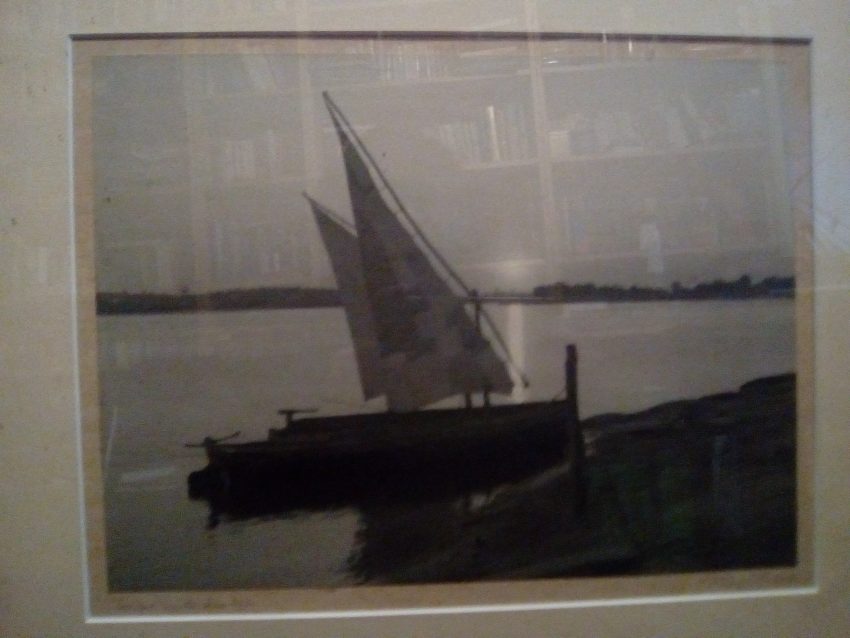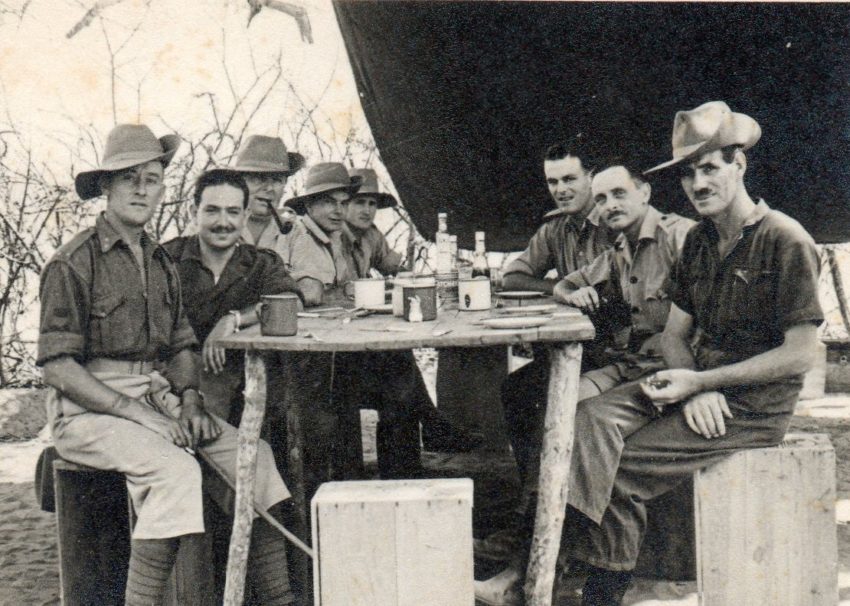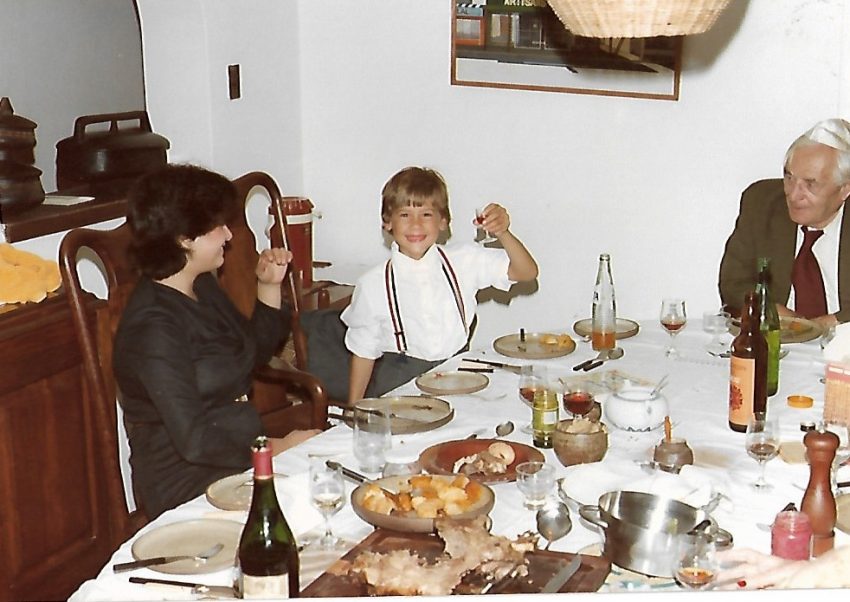“Those who cannot remember the past are condemned to repeat it.” (Quote from George Santayana but many other people re-quote or dispute this saying)

The Nuremberg Trial and the Nuremberg Laws
I write this post 75 years after the start of the Nuremberg Trials of Nazi war crimes, antisemitism and genocide. It’s a day that grows more significant every year because we don’t seem to learn from history. 10 years before that trial the antisemitic and racist Nuremberg Laws were enacted by the Nazi regime to protect ‘German Blood and German Honour’. In the years between those two events, the Second World War took place and there would be almost no place and no nation in the world untouched by this conflict. John and I know this because in 2008 we travelled through 27 European countries – from north to south and east to west and we found no country without places of deportations and massacres and memorials to that war. It was a war that impacted Africa and in which African soldiers fought.
The war dead

Figures for casualties can never be absolutely accurate but an estimated total of 70–85 million people perished, about 3% of the 1940 world population.
The Holocaust
Then there are the Holocaust deaths. 78% of European Jews, (about 6 million), were murdered. So, also, were Roma (Gypsies), homosexuals, disabled people and political opponents of the Nazi regime. The total number who were exterminated is about 11 million.
Displaced people
About 11 million to 20 million people were displaced during the war and afterwards about 11 million displaced people remained in Europe. Most wanted to return to their homes and were encouraged to do so.
Italian and Polish war refugees in Northern Rhodesia
An interesting account about the Polish refugees sent to safety in Zambia can be found on Abercornucopia.com. Almost all of them returned home afterwards but this wasn’t possible for all displaced people in Europe as countries, borders and politics had changed. It was especially not possible or desirable for Jews to return to their country of origin. Where could they go? Jews had faced decades, even centuries of persecution and pogroms and by the end of the 19th century were searching for places to live in safety.
Finding refuge in the colonies
European empires encouraged displaced or workless people to immigrate to their African colonies. This was, of course, an arrangement that was done without the consent of African people, so I’m not defending it. Empires resolved their social problems by using the colonies to benefit their citizens or to imprison criminals. It’s the reason that my mother’s family came to South Africa 200 years ago and my grandfather almost 100 years ago – in both cases to escape the poverty that resulted from earlier European wars. After WW2 war-torn nations didn’t want immigrants at home but decided their colonies could absorb them. That meant, for example, that some children of refugees, among them Jews, were at my school in Rhodesia.
Valuable immigrants
The contribution made by immigrants, no matter where they are from, is generally proven to be of great value to their new homes. African immigrants to the United States and to Britain, for example, often excel, ending up in the top 5% academically in spite of facing racism and discrimination as immigrants so often do. It is also true that people who had experienced injustice and persecution in their previous lives were often ready to support and endorse progressive and liberation movements. That happened in South Africa, Rhodesia and Zambia.
The Lusaka Synagogue, Zambia

Because my first husband was Jewish, I was fortunate to be able to participate in a small way with the Lusaka Jewish community. I felt very humbled when I saw the many prayer books and the Torah that community members had brought from their different synagogues in Eastern Europe. I knew at once that there was an important story to be told about the Jews of Zambia. Some years later the Council for Zambian Jewry would commission such a book to be researched and written by Professor Hugh Macmillan with initial help from Frank Shapiro. The book, Zion in Africa, is a wonderful and unique account of an extraordinary group of people who have made an enormous contribution to modern Zambia. I highly recommend it. It is an integral and important part of Zambia’s history.
Refugees in Africa
Zambia became a home for African refugees from both South Africa and Rhodesia during the liberation wars. American Vice-President Elect Kamala Harris’s grandfather P V Gopalan came to Zambia to advise on this matter in 1968. Another wonderful book is Petina Gappah’s Out of Darkness, Shining Light which begins in Zambia with the death of David Livingstone and the decision by the people who travelled with him to take his body back to his home. It is a story of an Africa devastated by the Arab slave trade that Livingstone hated. My own novel The Tin Heart Gold Mine is also about the impact of war and refugees on Africa. A new prize-winning book by Namwali Serpell, The Old Drift, is a huge story about Kariba Dam, the Zambezi, Africans and colonists and migrants and all of these things together.
Holding on to hope
Judge Robert Rinder spoke about the Holocaust on ITV in Robert Peston’s programme this week. He said it was important to recognise that the Holocaust was not the work of a backward poverty-stricken nation, but one of the most advanced in Europe. He said that we must all fight racism and antisemitism wherever we are. It seems to me that this is the only way for us to go forward to a better and safer world for everybody.
2 Comments on “Displaced people, refugees, immigrants, colonisation and war”
The Nuremburg trials and laws on genocide and acts against humanity are well described in a book East West Street by Philippe Sands. Deals with the development of the laws leading up to the trials and also shows the opposition to recognizing genocide and acts again humanity by various national leaders, and this opposition was enough to give the unclarity that exists today in dealing with countries like Syria.
Regarding War Refugees in Northern Rhodesia, read Frank Schapiro ‘s book Haven in Africa. The Brits gave the 500 permit to Jews from Germany to come to Northern Rhodesia because they wanted white people with skills in the country. WE got much less than 500 as this action was too late. The Jews who did come like the Messerer family in Mufulira never complained about what they lost but put theirs hearts and skills into working to for the new country. Most didn’t send money home because there was no home (as opposed to the Indian communities who sent most of they money home), The immigrants and their children did well, immigrants absorbing themselves into community affairs, learning to send their children to boarding school at an early age (quite against their family principles) ; became active in civil society (Masonic Lodge, Rotary Club, Women’s’ Institute, learned English mainly through reading books and integrated far more than other immigrant groups. Over time, the skills, knowledge and affiliation efforts of the Jewish immigrants/refugees were accepted (except for entry into the Golf Clubs so the Jewish kids were told that it was a stupid game anyway). WE also had the legacy of the Jews who came early as entrepreneurs – such as the Woldson and Sussman family who had an excellent approach to dealing with the local chiefs rather than the British governors. The issue there was mutual respect with the chiefs and not being regarded as second class refugees by the British.
More later on racism and in IDPs -Internally displaced persons, and refugees in our era.
Thank you Aviva for this really interesting and informative comment. I hope that you will write more on racism and IDPs- there is so much I don’t know about the history of Zambia and the contributions made by Jews and you and your family. I haven’t read Frank’s book yet – I’ll have to order it soon. I do value your input and comments very much – Ruth